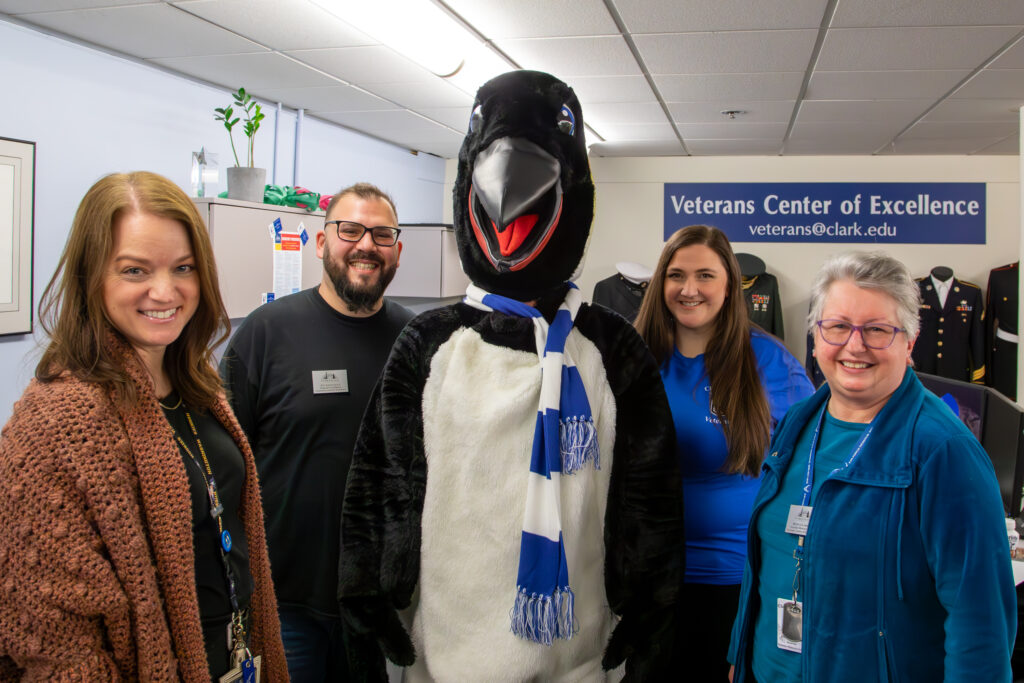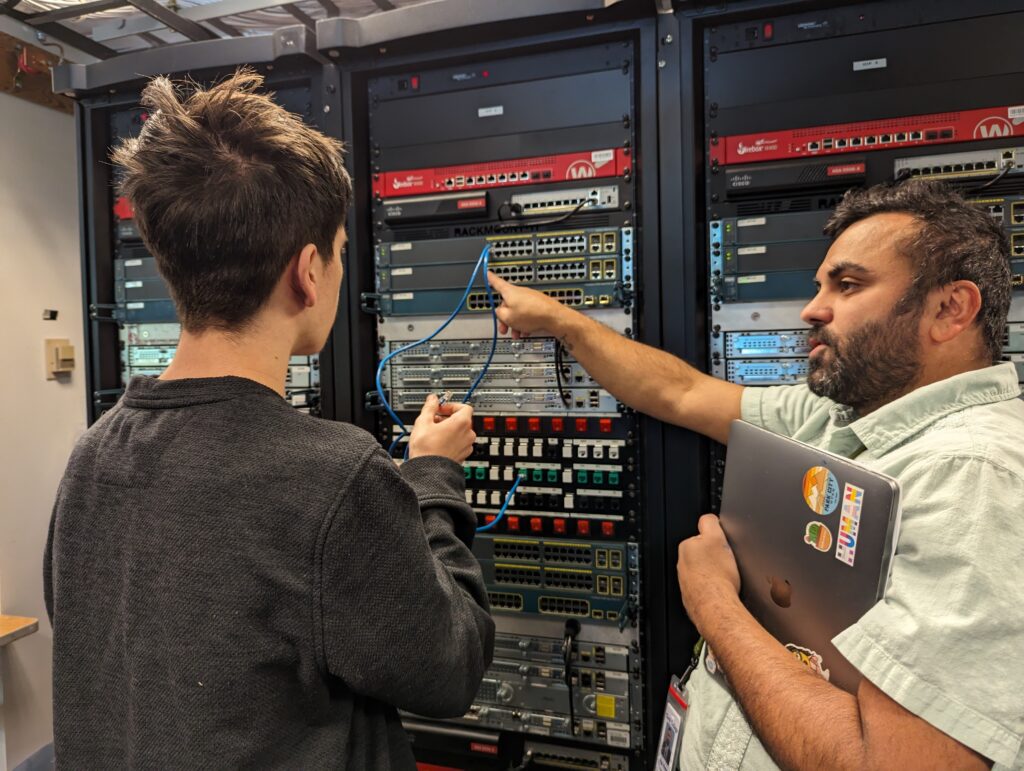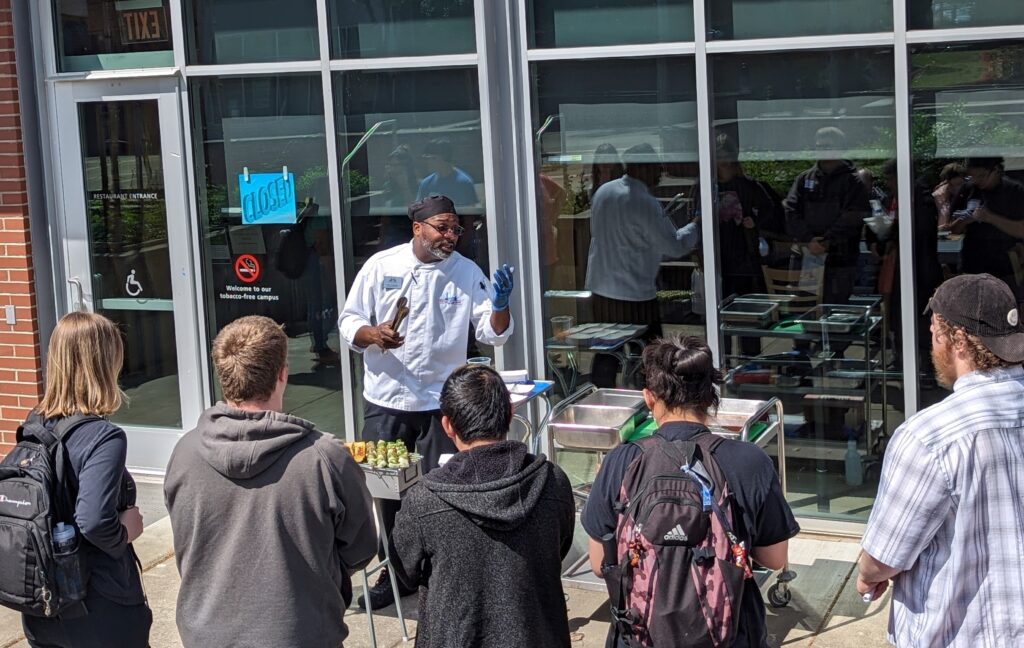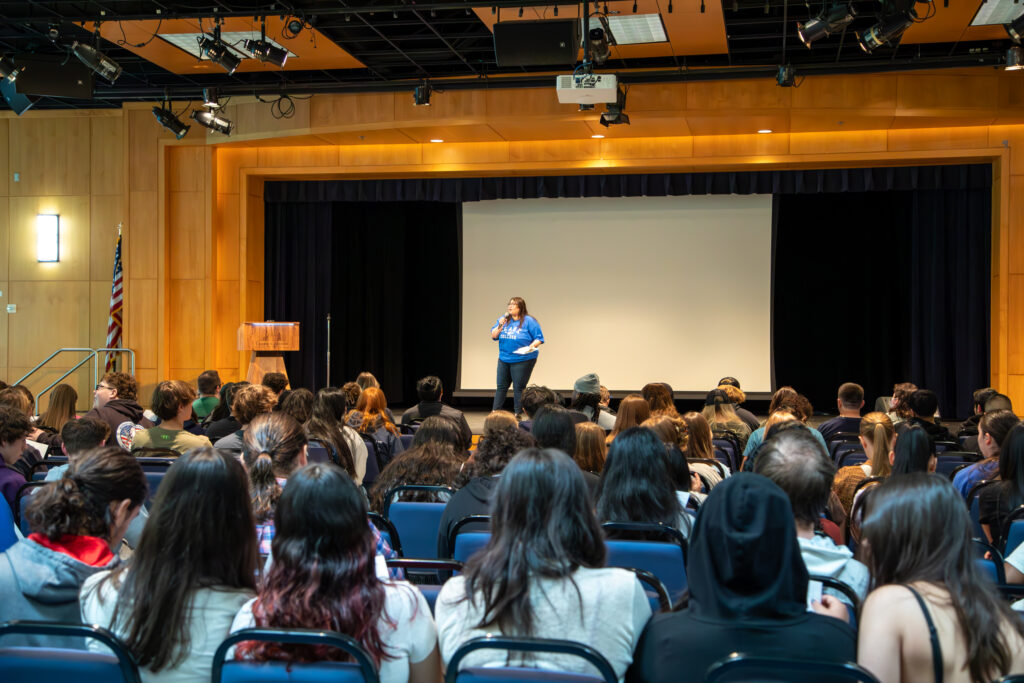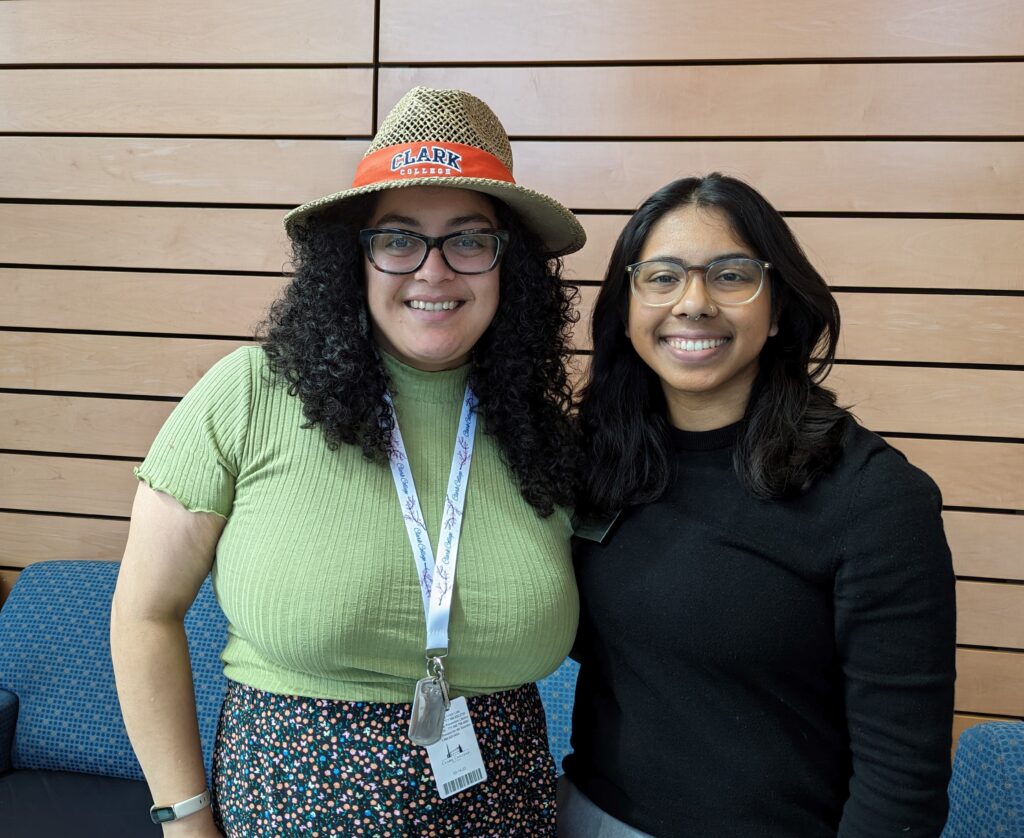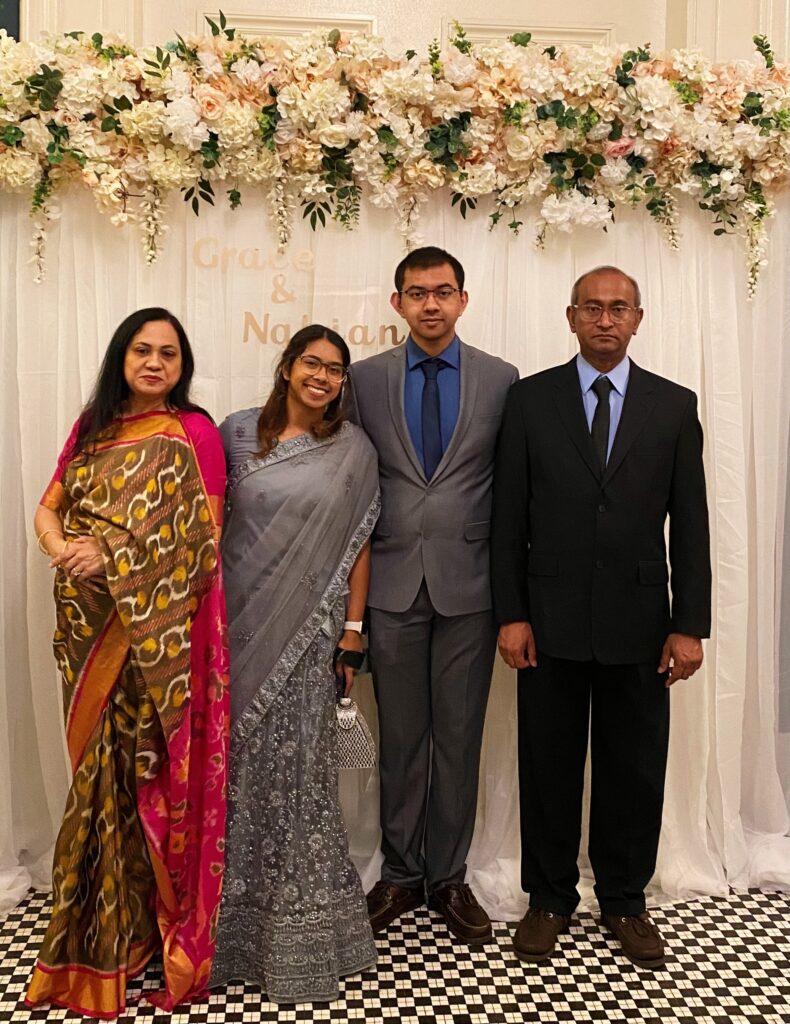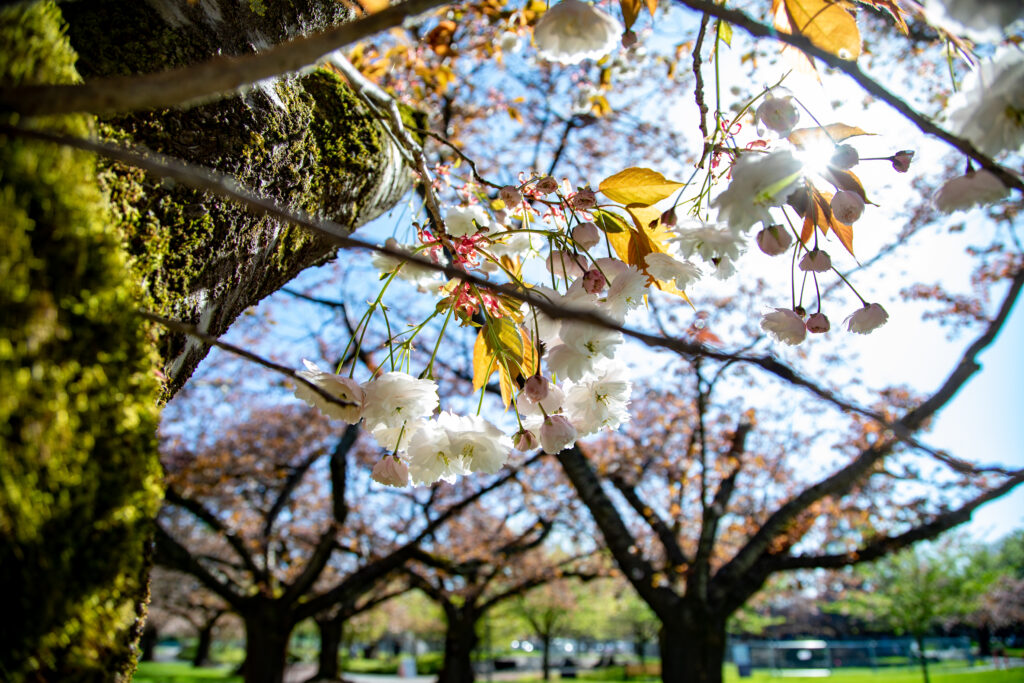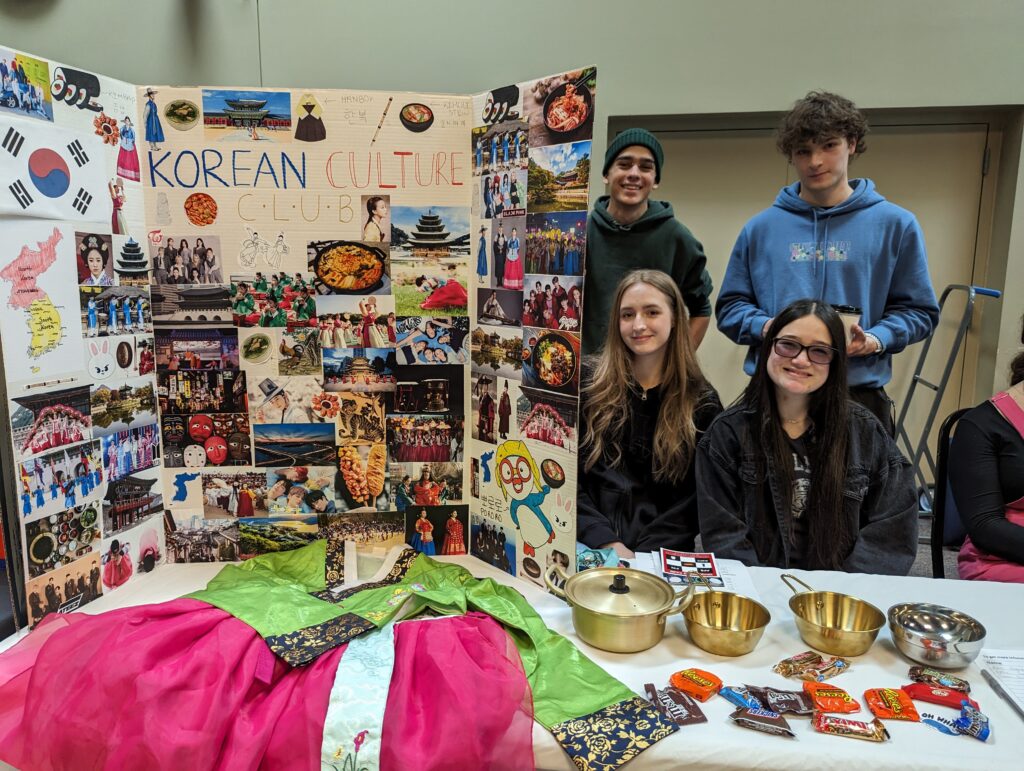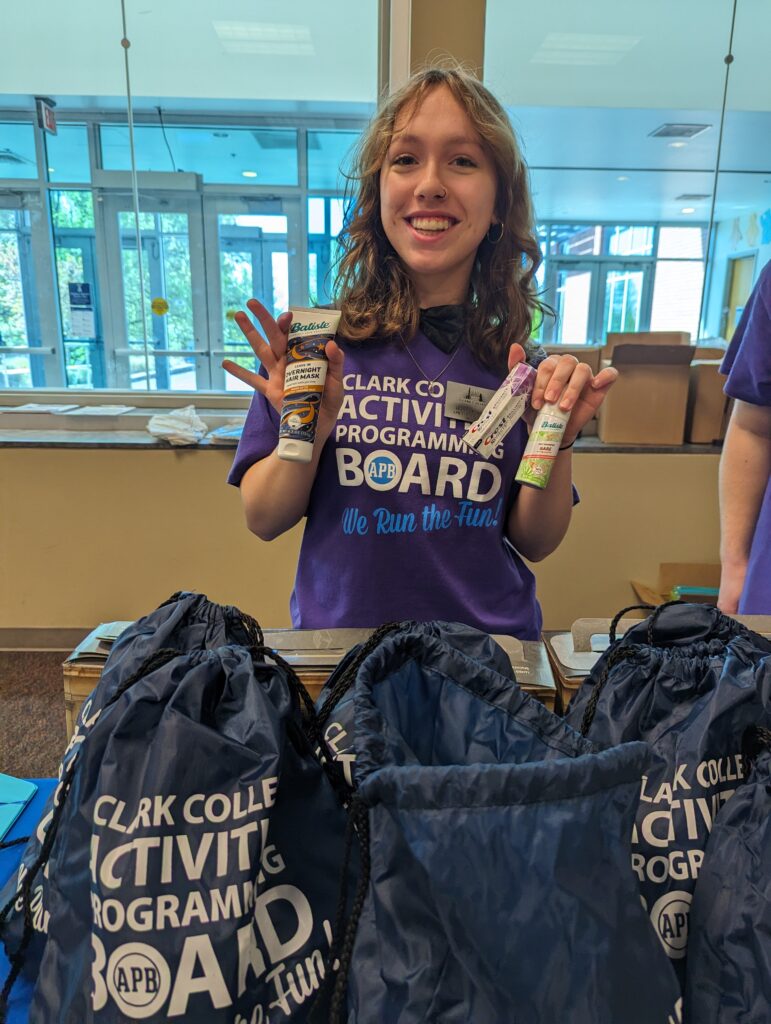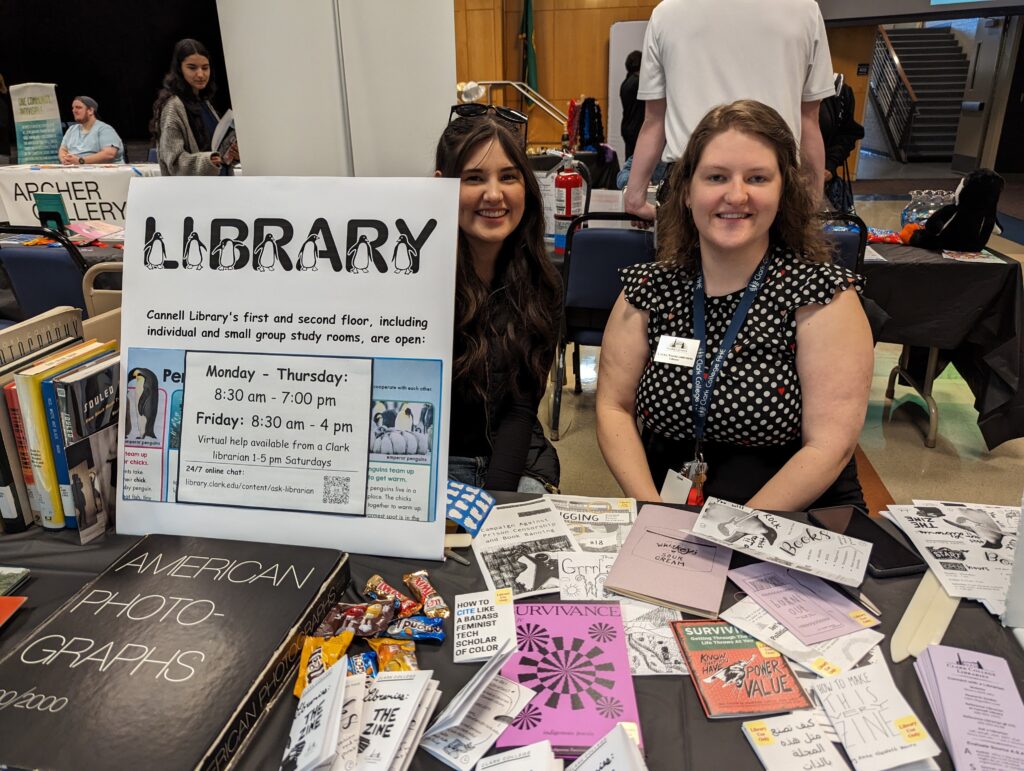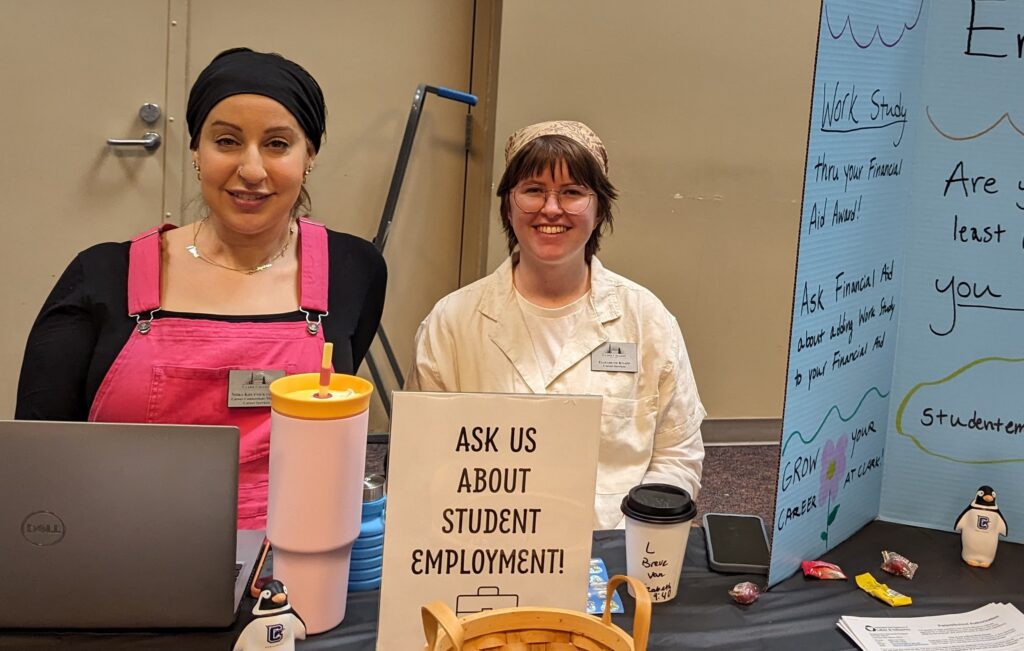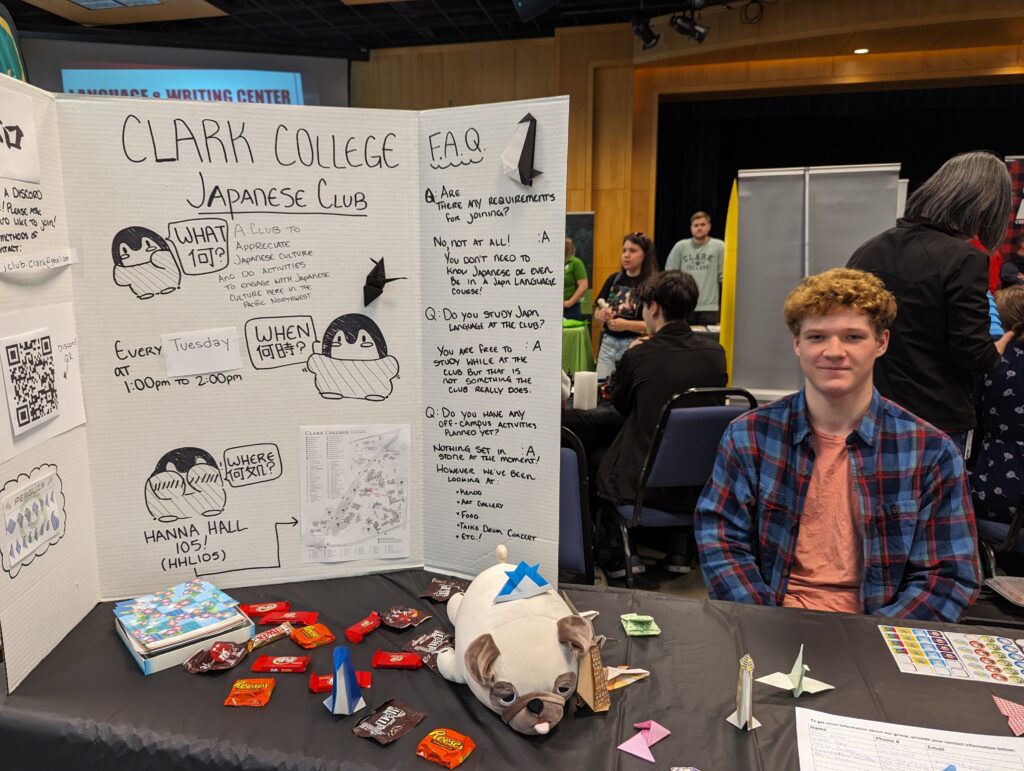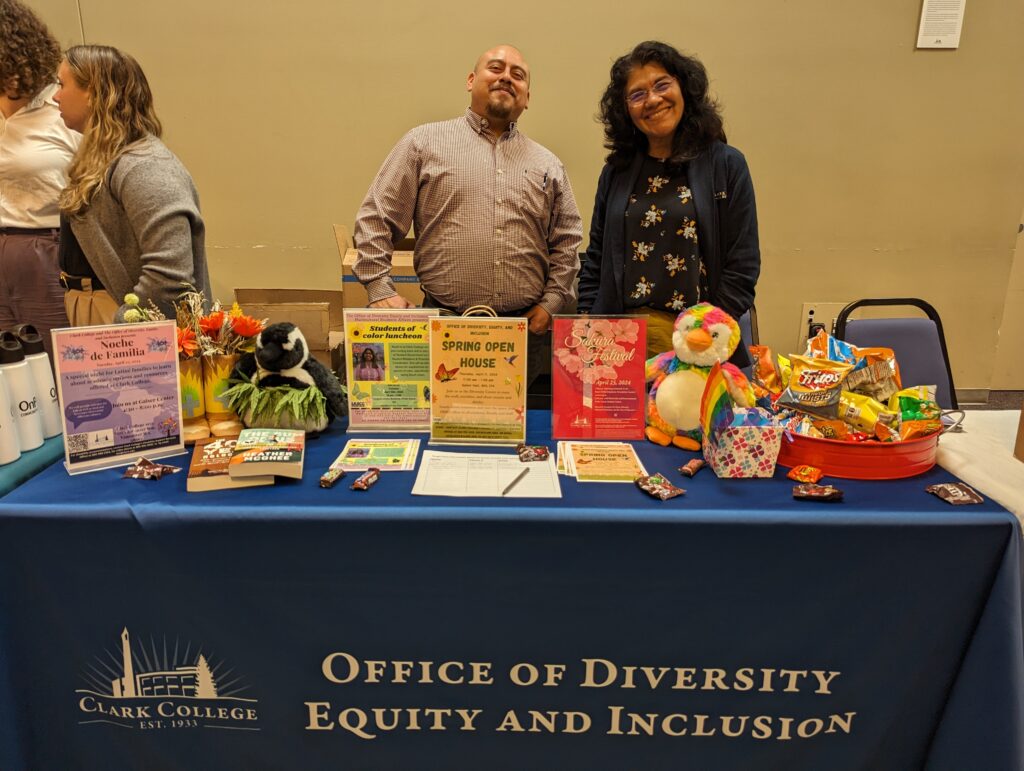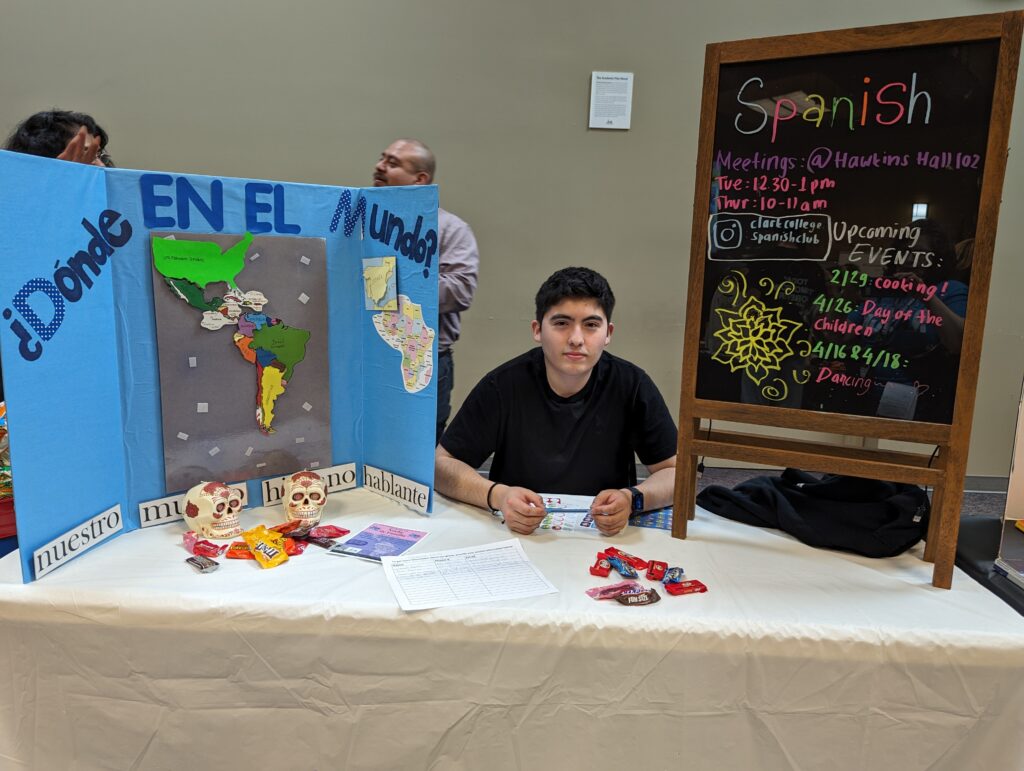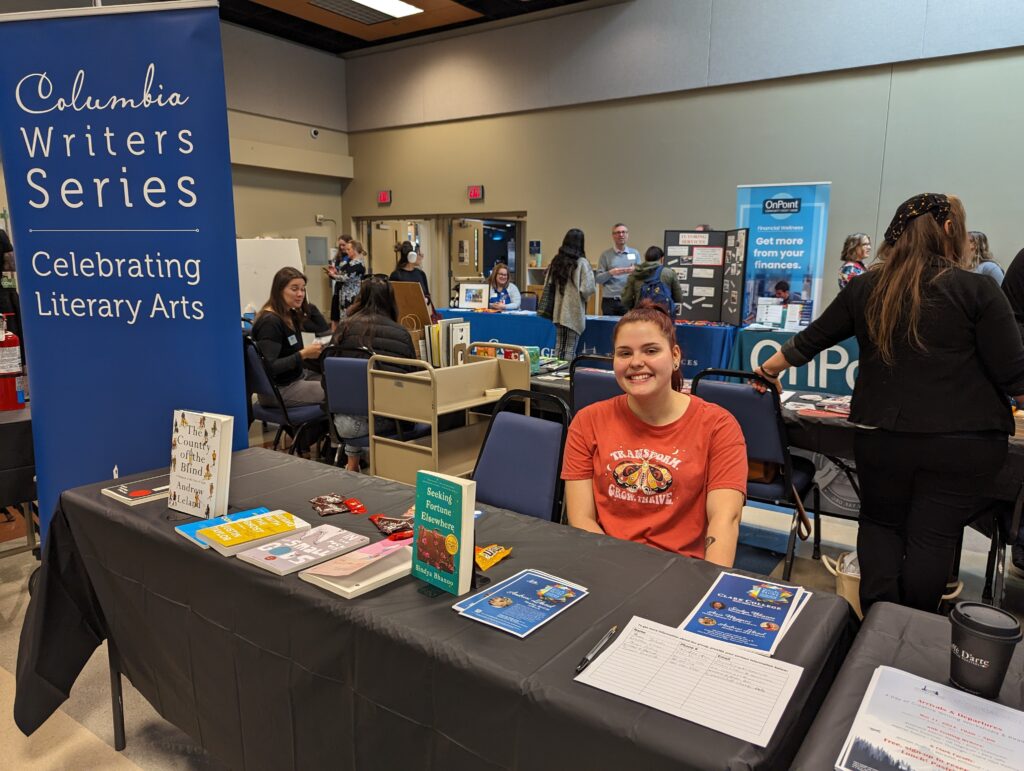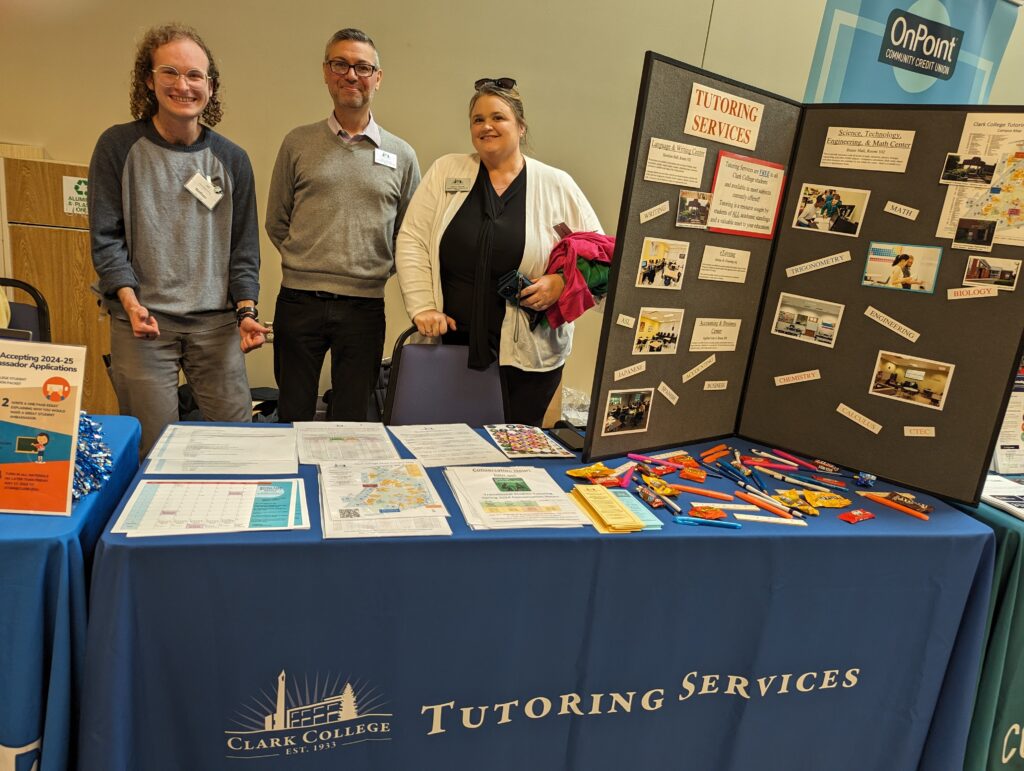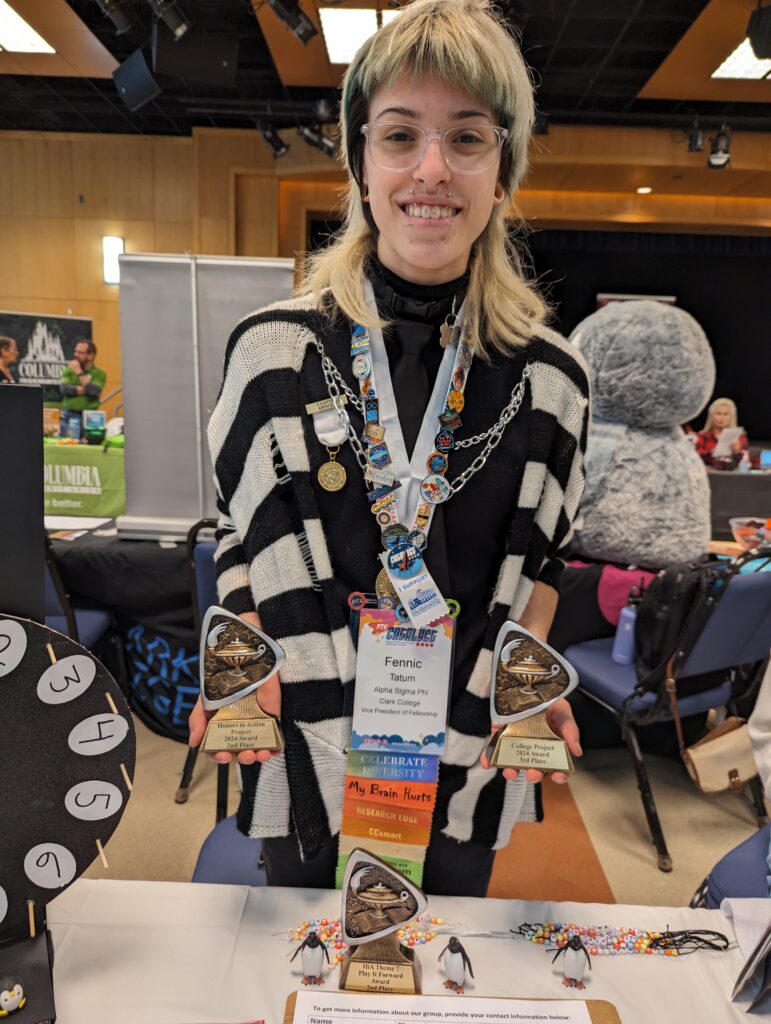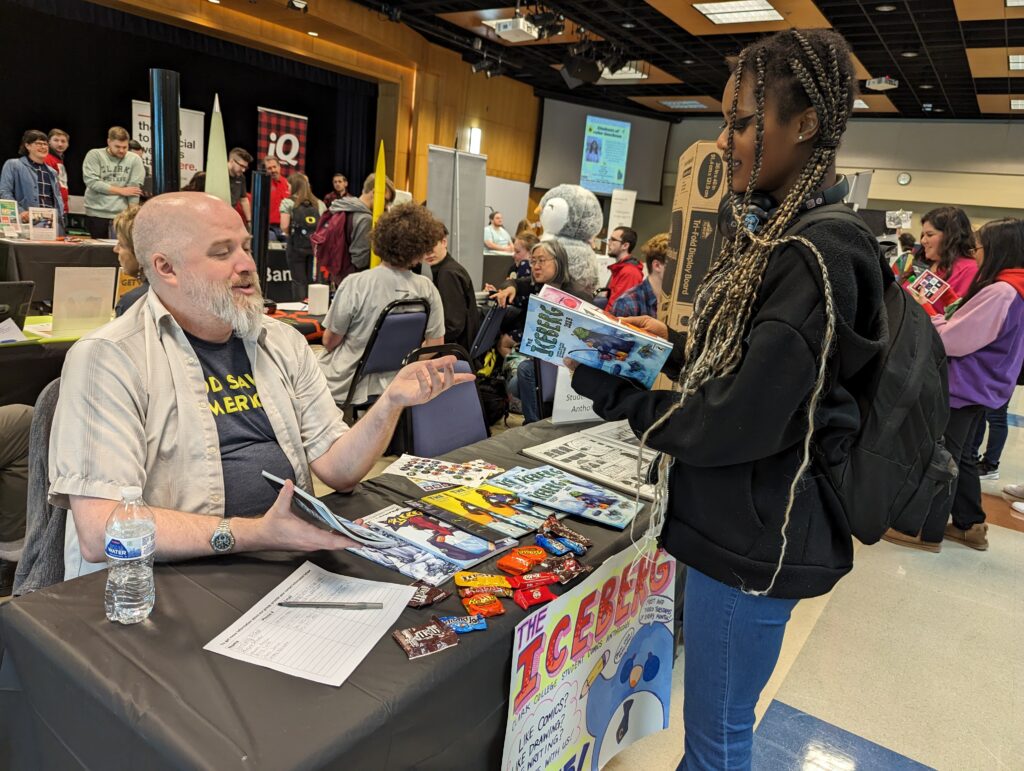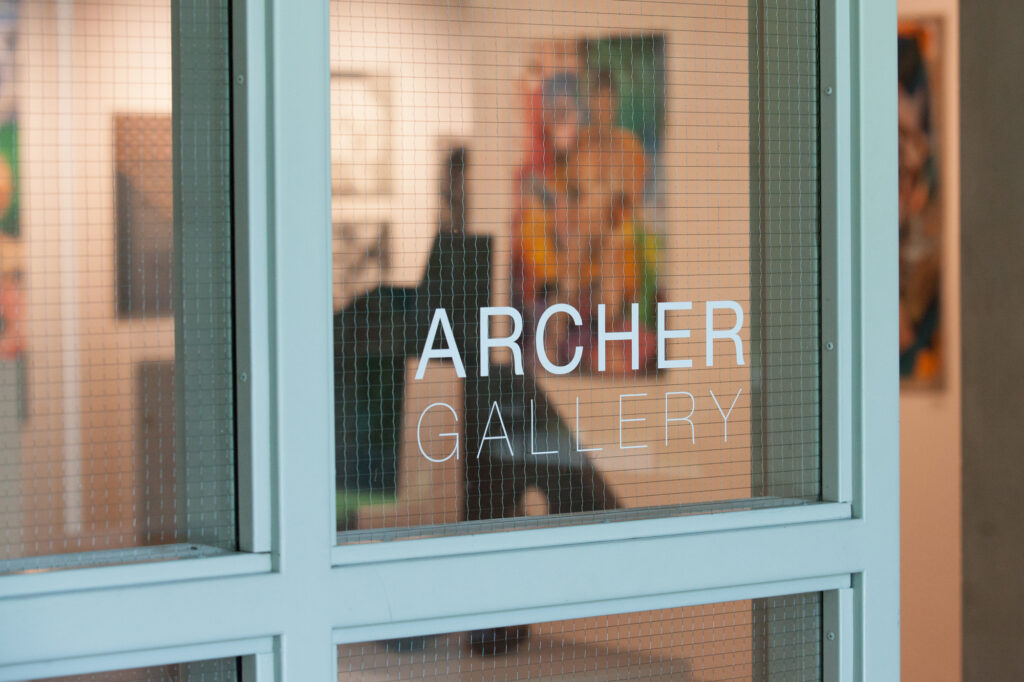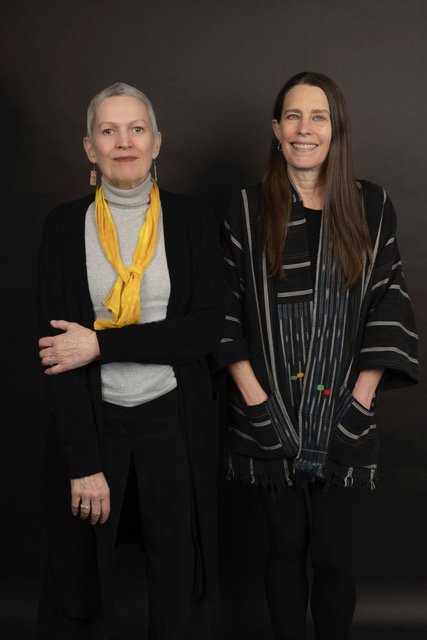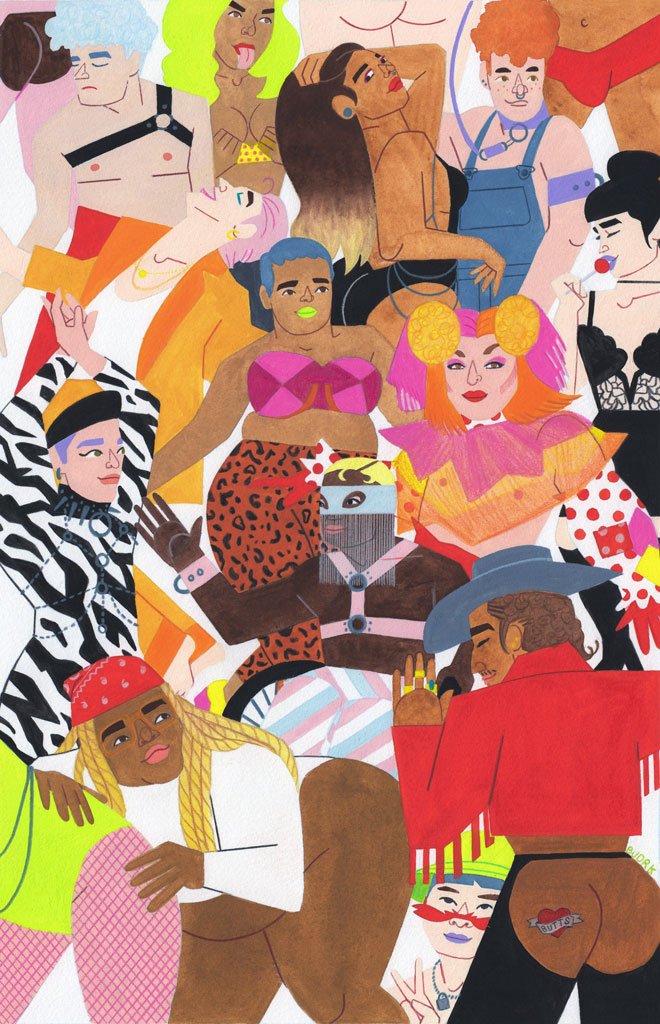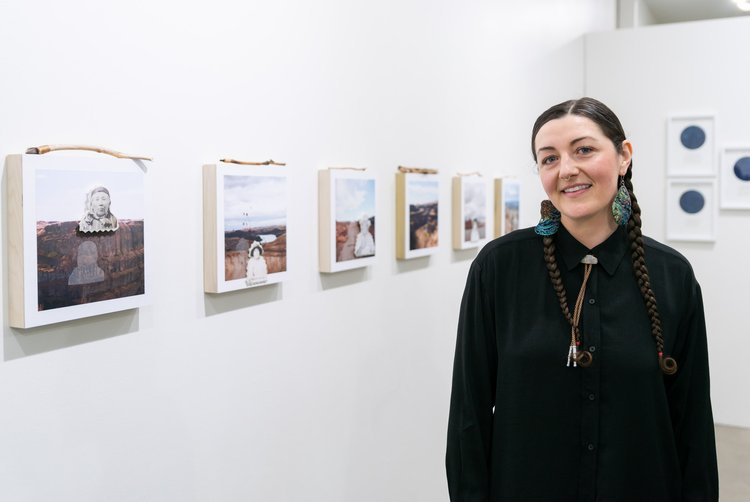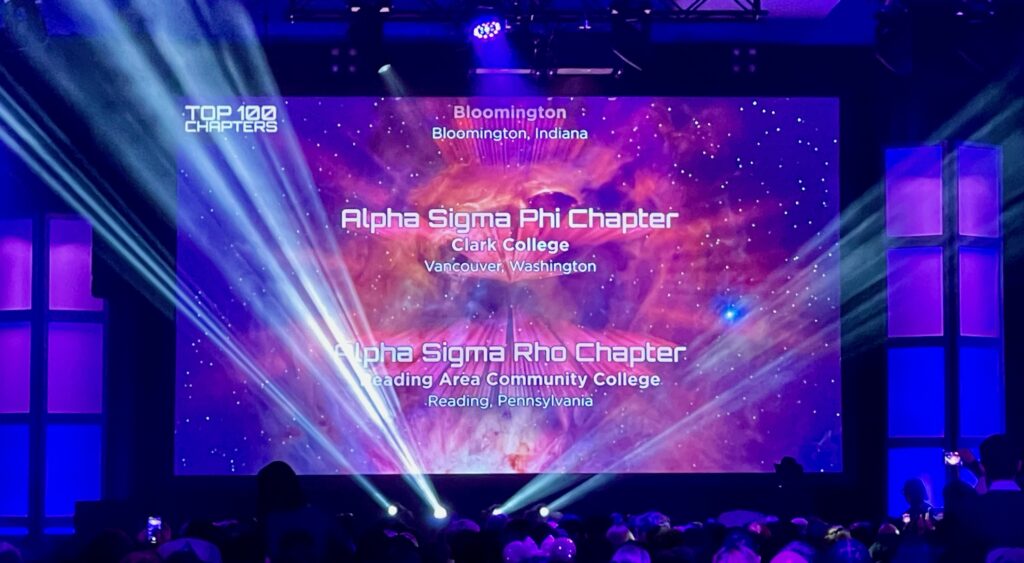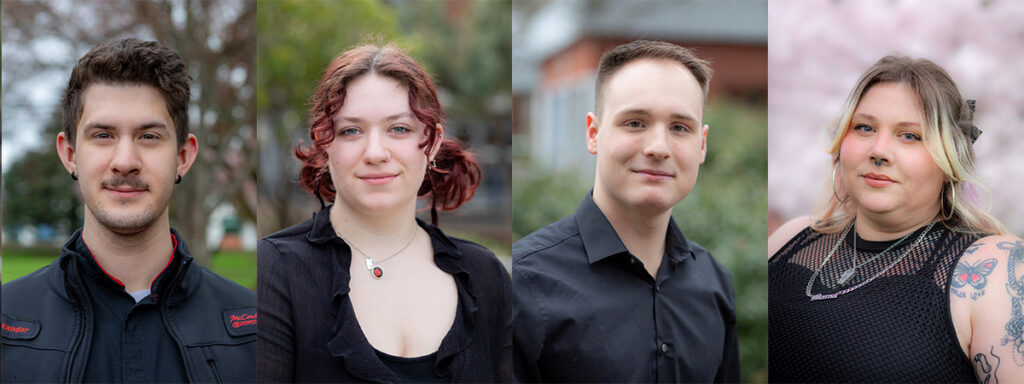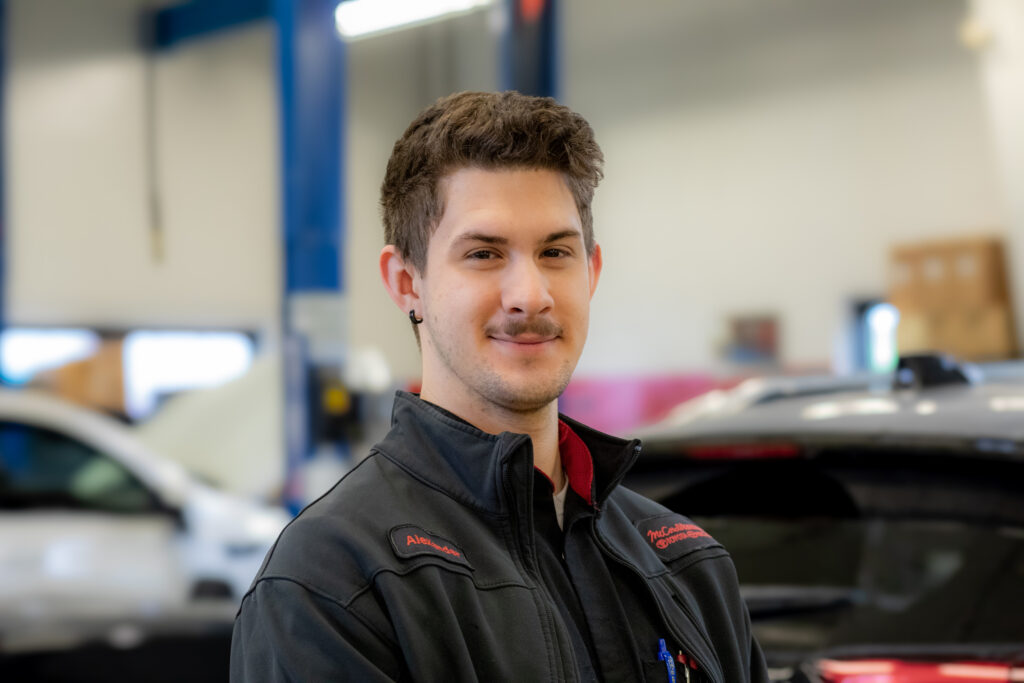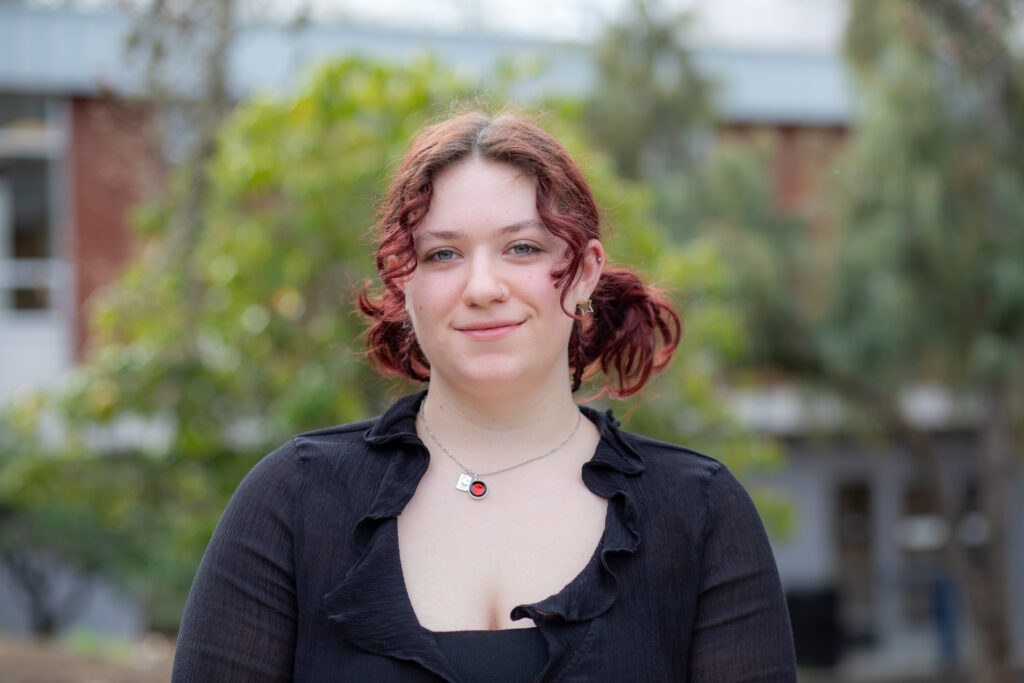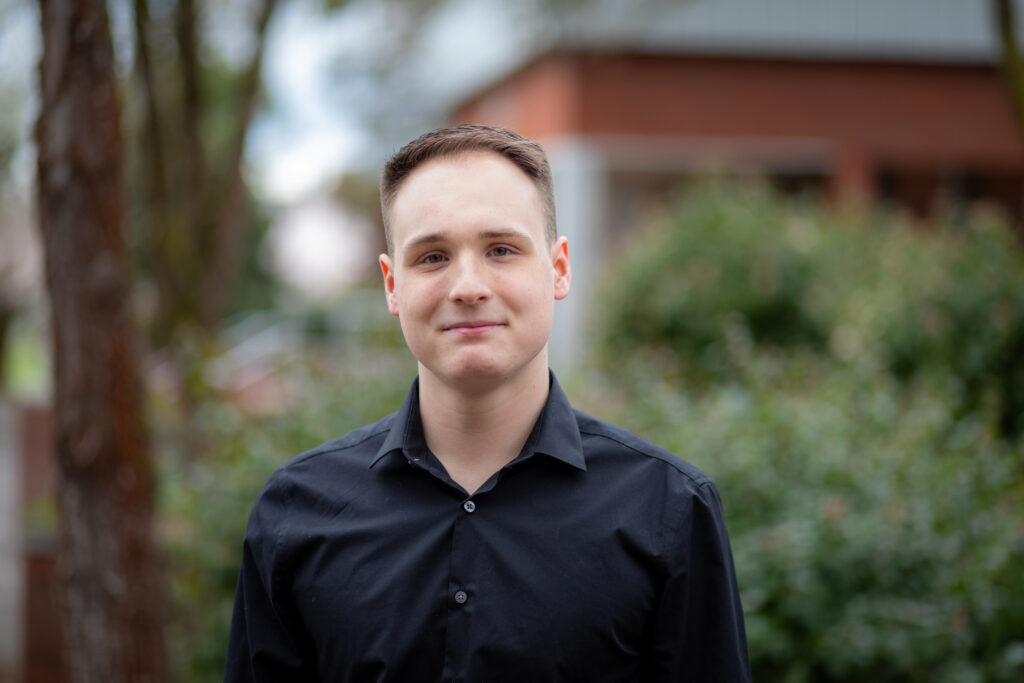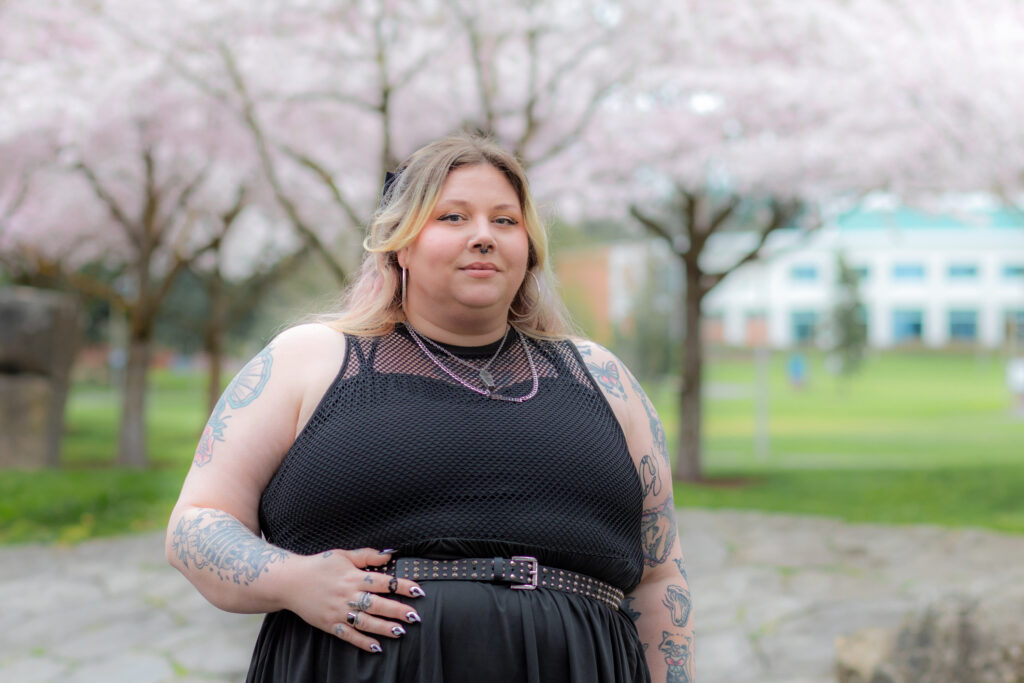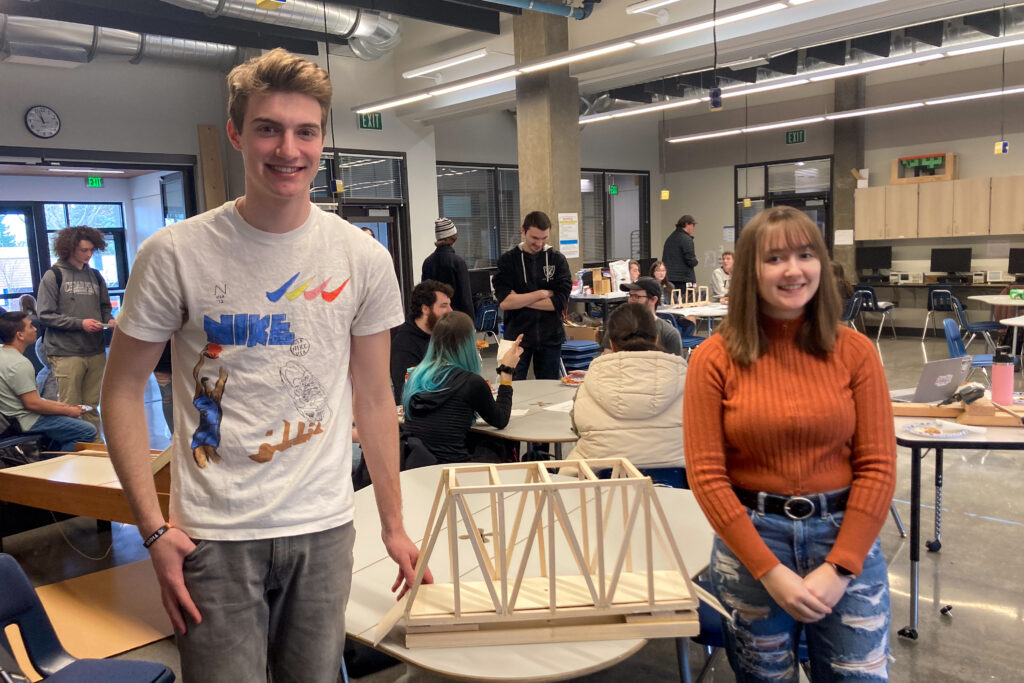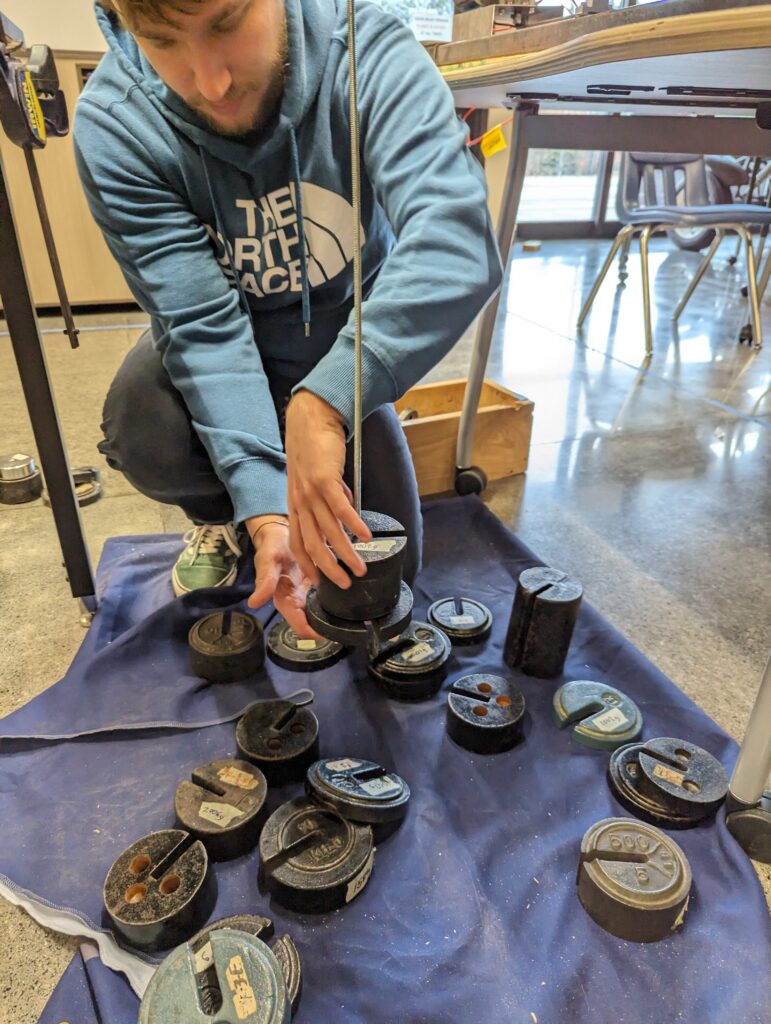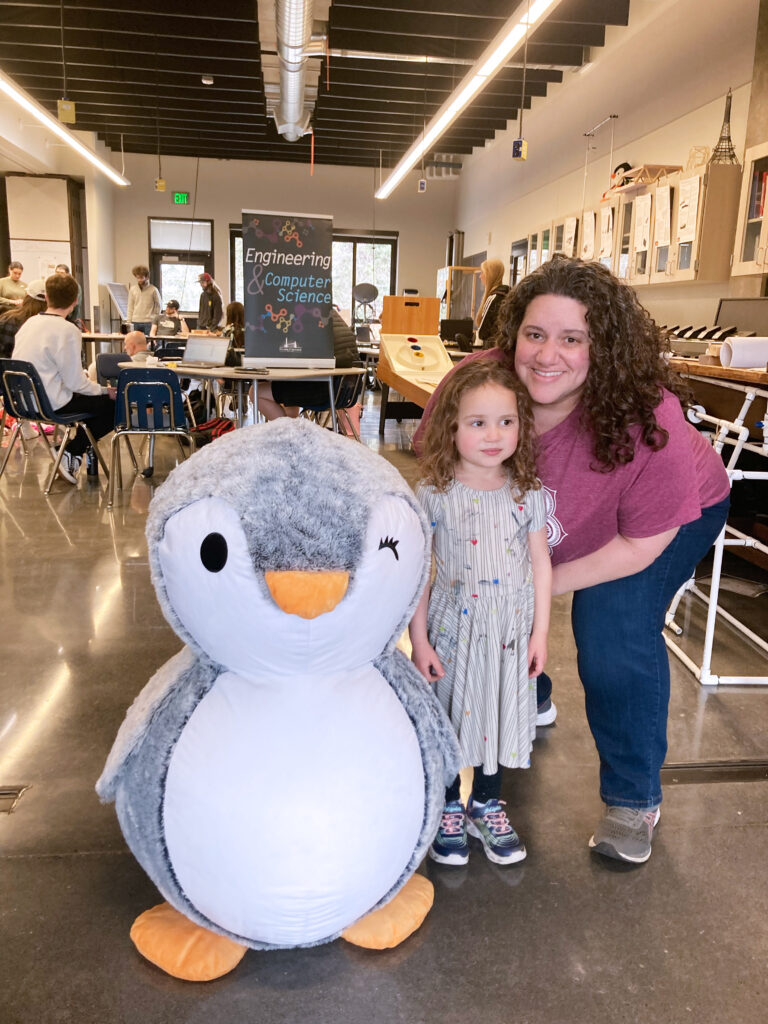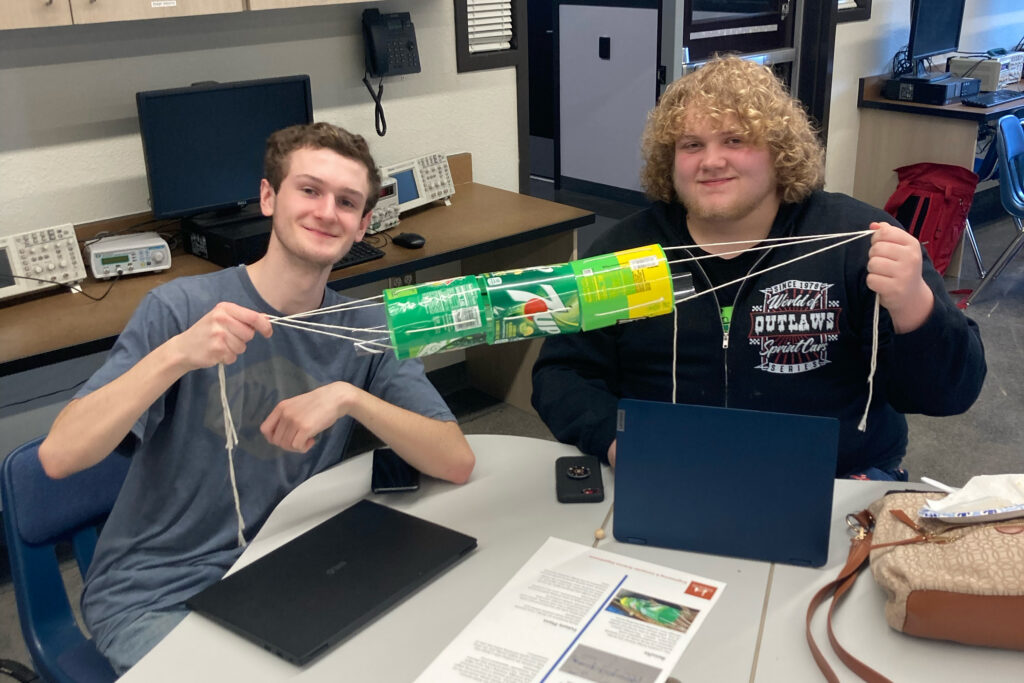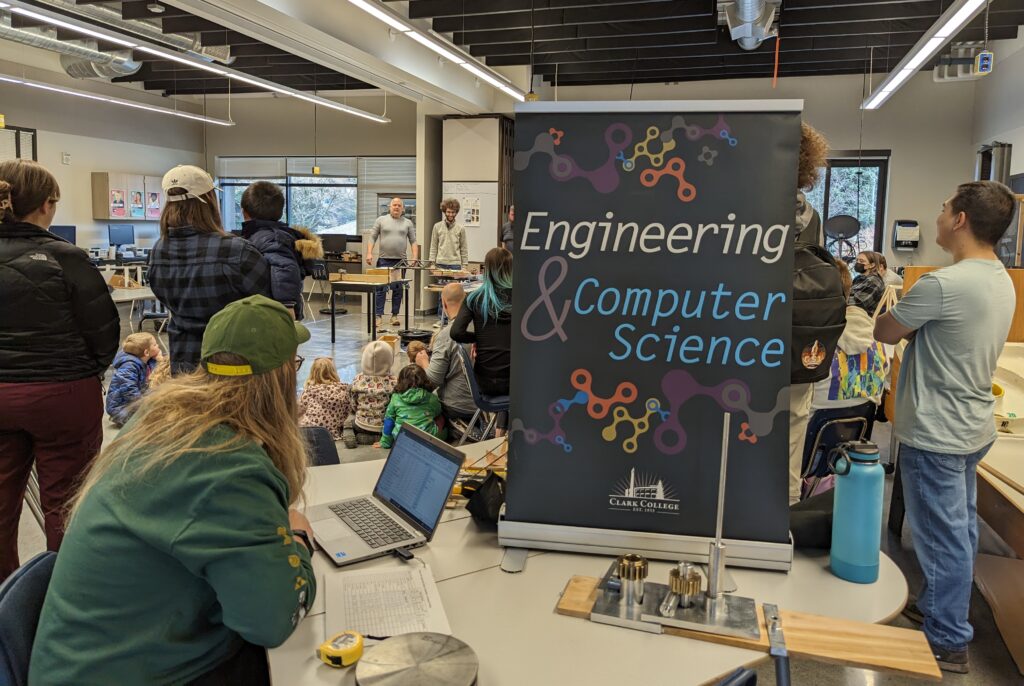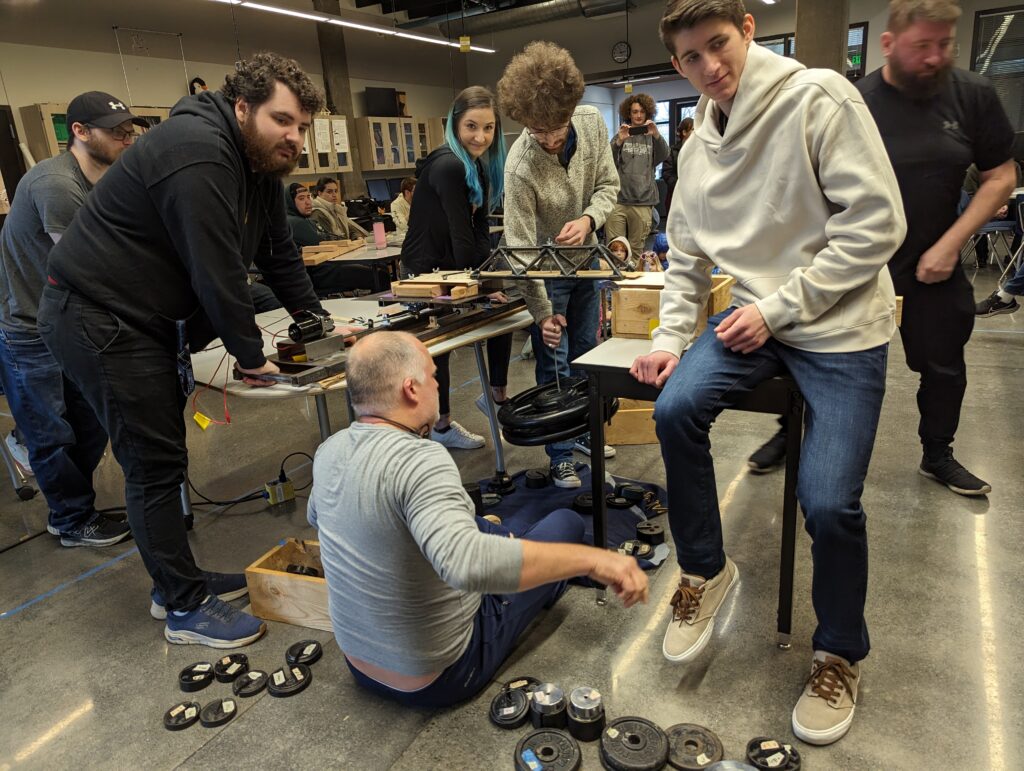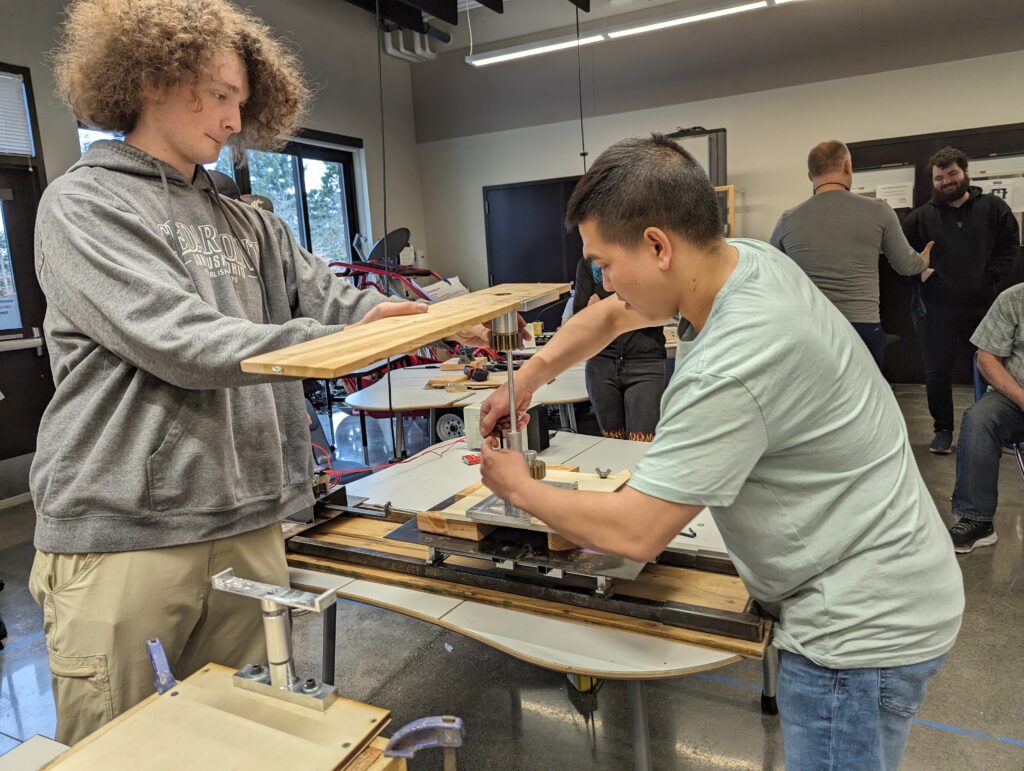Noche de Familia 2024
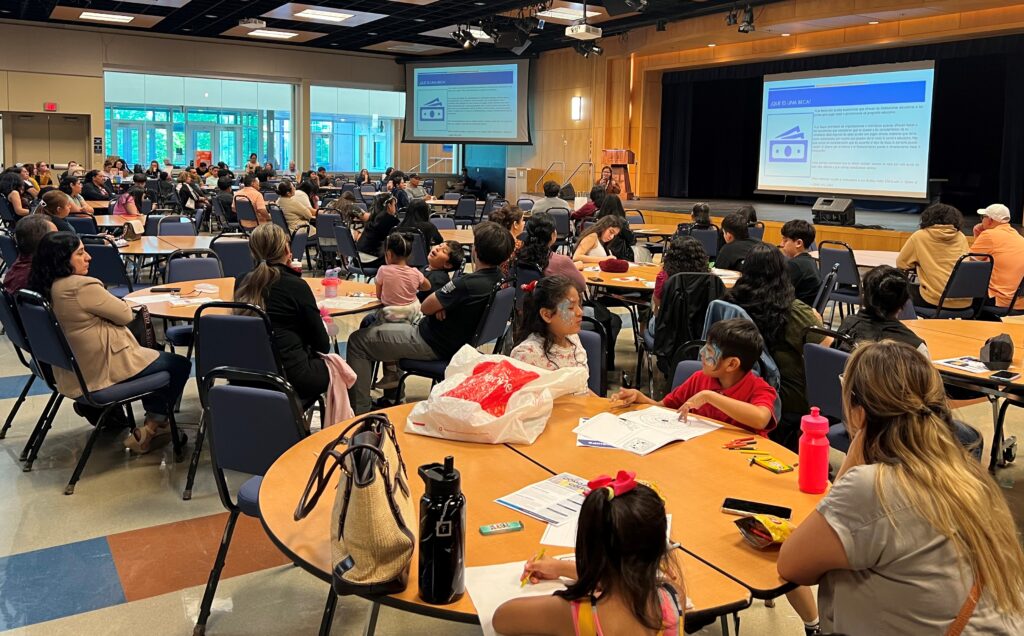
Clark College hosted Noche de Familia on April 23, a special night for Latiné families to learn about academic options and internal and external resources available at Clark College. Offered in the fall and spring quarters by the college and the Office of Diversity, Equity, and Inclusion, the free event included activities for kids and dinner for all.
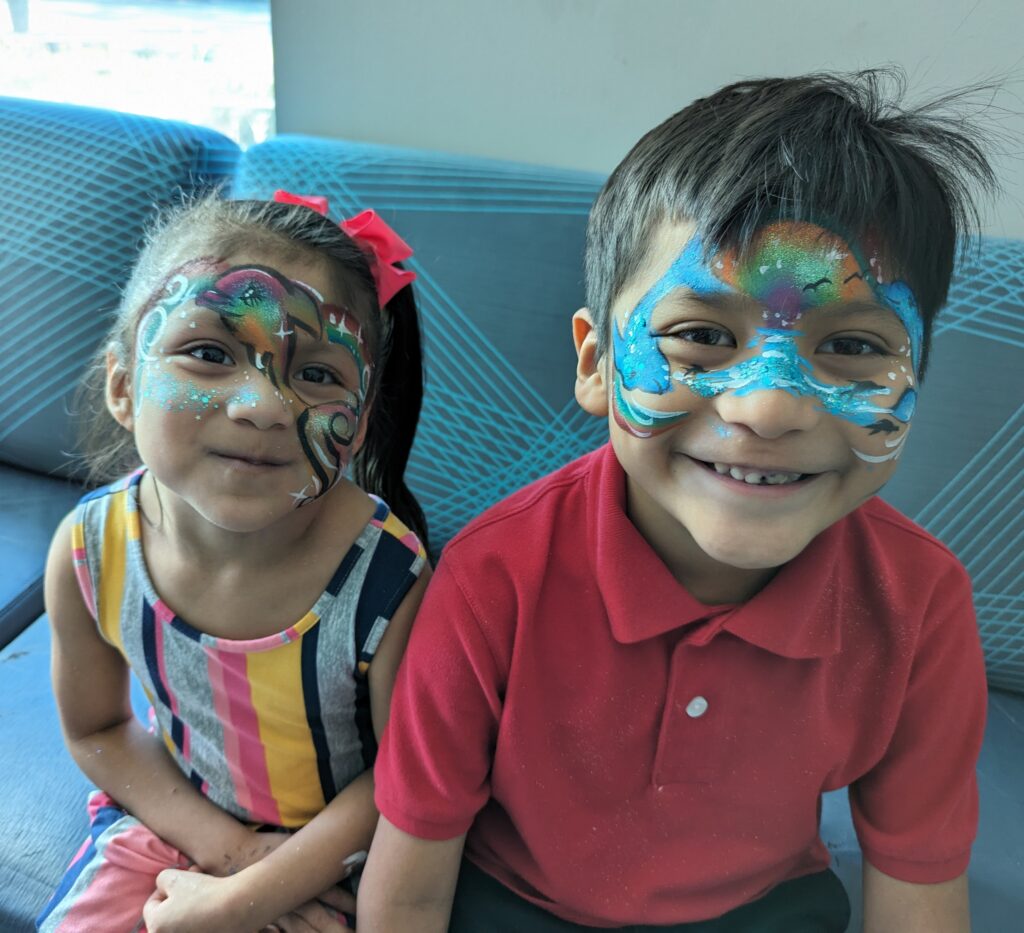
While the grownups were busy, the face-painting table was a popular destination in Gaiser Student Center. Siblings Rodrigo and Emma Hernandez and Xiomara and Lindsay Montalvo seemed pleased to show off their faces sporting sparkling dolphins, butterflies, and roses.
But the face painting was just one element in a night of family fun, food, and information that can change the trajectory of a family’s education, earning potential, and opportunities.
Clark employees presented useful information for potential Clark College students—including applying for financial aid, applying to Clark, and the many supports Clark offers to assist students. The entire program was presented in Spanish, including introductions and all presentations.
We were happy to welcome Silvia Mariscal as the keynote speaker, a 2017 Clark graduate who shared her story. Her grandkids inspired her to go back to college. She reminded the attendees that it is never too late to come back to school and continue learning. She will continue her studies at WSU Vancouver.
A panel of four current Clark students gave tips about how to be a successful student, including using Clark resources. They also talked about how parents can be supportive of their children and encourage them to graduate and attend college. The panelists were Maria Luisa Martinez, a returning Career and Academic Prep (CAP) student who wants to study business; Melissa Lopez Heredia, studying computer science and member of Mathematics, Engineering, Science Achievement (MESA); John Miguel, studying civil engineering and member of MESA; and Elver Castro Aguiniga, an English as a Second Language (ESL) student who is the parent of another Clark student.

Attendees also had opportunities to speak with Clark representatives from Financial Aid, Transitional Services, Workforce Education Services, Disability Support Services, Counseling and Health Center, Career Services and more. Personal appointments were offered to maintain student privacy and explain the processes of applying for Clark College and applying for financial aid.
“Noche de Familia is a fall and spring quarter event for our Latiné community to come to campus and learn about opportunities to attend Clark College—and so much more,” said Rosalba Pitkin, Office of Diversity, Equity, and Inclusion. “By offering this event in their native language, we are promoting cultural diversity, preserving heritage, and ensuring that everyone has equal access to essential services and opportunities. We are pleased to invite our community to learn about so many resources available to those who want to attend Clark College and expand their horizons.”
At tables around the perimeter of Gaiser Student Center, several community nonprofits and organizations provided information about scholarships and other support and assistance.

- The Washington State Commission on Hispanic Affairs: https://www.cha.wa.gov/
- Community Foundation for Southwest Washington: https://www.cfsww.org/
- Ren Locus non-profit tax organization: https://renlocus.org/
- Latino Leadership Northwest: https://latinoleadershipnw.org/
- Betancourt Foundation: https://www.betancourtfoundation.org/
- Pasitos Gigantes Southwest Washington: www.PasitosGigantes.org
- Washington State Opportunity Scholarship program: https://waopportunityscholarship.org/
Deanna Green, senior scholarship manager and development associate at Community Foundation for Southwest Washington, offered information about scholarships available for high school and college students.
During the event, Green posted on social media: “Promoting CFSWW scholarships at Noche de Familia at Clark College from 4-8 p.m. Education is a family affair! I love Clark College. Proud Penguin alum!”
While potential students learned more about Clark College, children busied themselves not only with face painting but also games and educational activities.
Pitkin added, “We are planting a seed in these children, so they will be ready to go to college. Perhaps one day these children will be Penguins.”
Office of Diversity, Equity and Inclusion
- In person: Diversity Center, Gaiser Hall 214
- Phone: 360-992-2292
- Email: diversity@clark.edu
- Website: https://www.clark.edu/campus-life/student-support/diversity-and-equity/
Photos courtesy of Rosalba Pitkin
